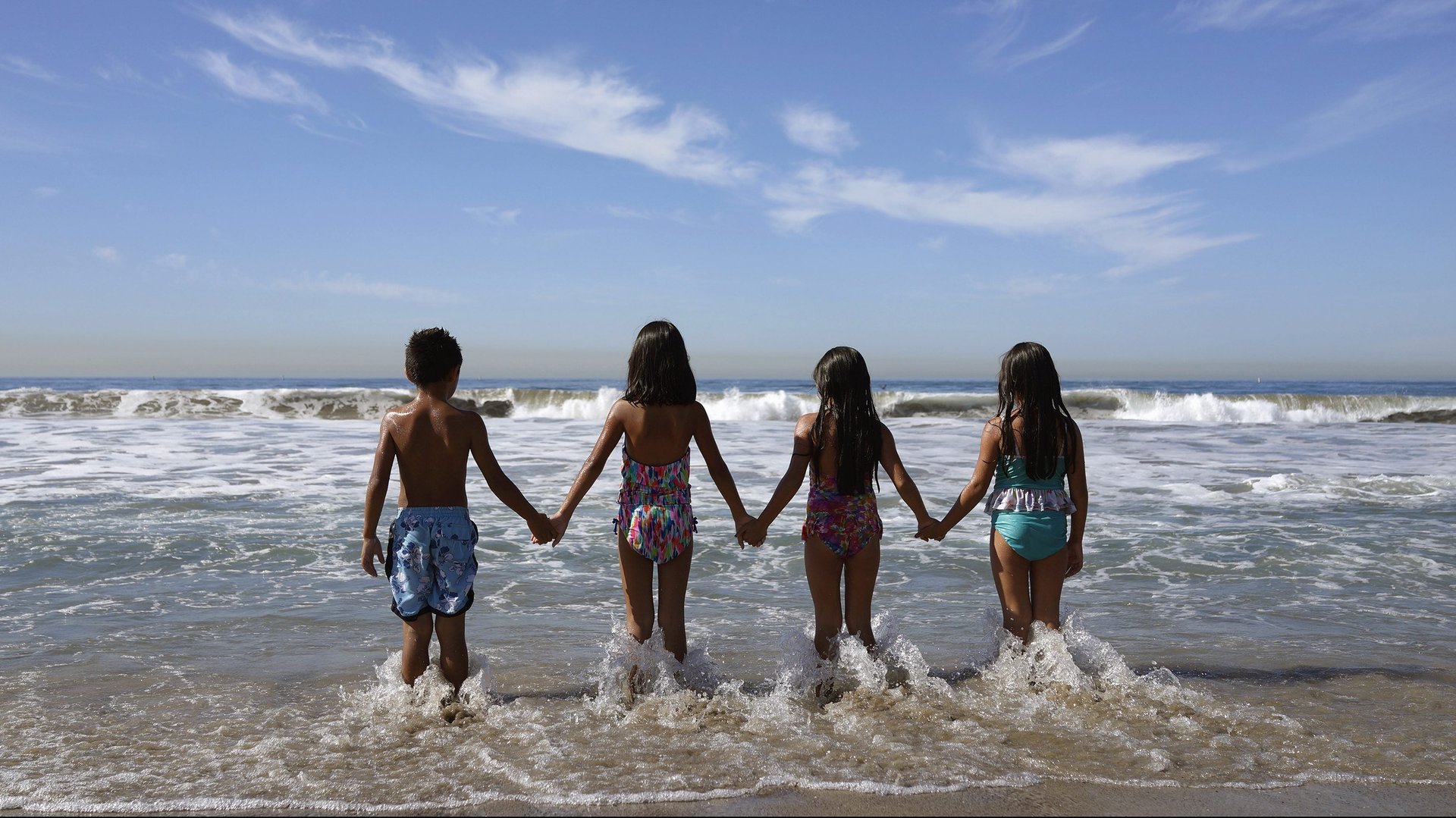A comprehensive guide to surviving a full summer with your kids
Every year for 18 years, kids leave school for up to three months, and parents are left scrambling to fill their days in other ways. When kids are very young, that might involve a desperate search for daycare options. When they get older, it might mean summer camp, travel, or work experience. Either way, most parents agree it’s a hassle, and an often expensive one at that.


Every year for 18 years, kids leave school for up to three months, and parents are left scrambling to fill their days in other ways. When kids are very young, that might involve a desperate search for daycare options. When they get older, it might mean summer camp, travel, or work experience. Either way, most parents agree it’s a hassle, and an often expensive one at that.
When the stars align, summer break can be an incredibly happy, adventure-filled, and enriching time for kids, providing them with life-long memories. Those experiences are precious; science shows that playing outside and in nature, and getting some sun (though not too much) can significantly benefit kids’ physical and mental health.
But summer vacation is not a universally positive experience. For some, it leads to an educational backsliding known as “summer learning loss.” In the US, this loss most keenly impacts poor kids who don’t have access to the same stimulating summer activities—like reading, traveling, or trips to museums—as their wealthier peers. And summer camps, which once offered middle- and working-class kids invaluable time outdoors, are now unaffordable for many, Kari Paul writes for Quartz.
What can today’s parents do to keep their little ones entertained and learning during this potentially stressful time? Here are some ideas that Quartz writers have compiled over the years:
The best things to do with young kids
Young children need unscheduled and unsupervised playtime to thrive. Playing can help kids “develop language and executive functioning skills, learn to negotiate with others and manage stress, and figure out how to pursue their goals while ignoring distractions, among other things,” Quartz’s Jenny Anderson explains. “It is fertile ground,” writes Jessica Lahey, a journalist and teacher, “the place where children strengthen social bonds, build emotional maturity, develop cognitive skills, and shore up their physical health.”
Play is so important, in fact, that the American Academy of Pediatrics recently recommended that pediatricians prescribe it to children. So, parents, take doctors’ advice, and ditch the packed schedule for some playdates—preferably near green space. “A kid’s ideal summer schedule, according to them, is likely not to be rushed, stressed, and overextended,” writes Anderson. “It probably involve lots of time with friends, plenty of down time, and some experimentation.”
Encouraging your children to experiment with the world around them through play fits in well with a vision of summer break that child development specialists and psychologists say is good for kids: A little bit of boredom. As Quartz’s Olivia Goldhill writes, “over-scheduling children during the summer is unnecessary and could ultimately keep kids from discovering what truly interests them.” If you pack your child’s summer schedule with toddler camp or daycare, you might be be taking away an opportunity for them to develop their creativity. Goldhill spoke to Lyn Fry, a child psychologist in London with a focus on education, on how parents can approach it:
“[Fry] suggests that at the the start of the summer, parents sit down with their kids—at least those above the age of four—and collectively write down a list of everything their children might enjoy doing during their break. These can be basic activities, such as playing cards, reading a book, or going for a bicycle ride. They could also be more elaborate ideas such as cooking a fancy dinner, putting on a play, or practicing photography. Then, if your child comes to you throughout the summer complaining of boredom, tell them to go and look at the list.”
The best things to do with teenagers
Teenagers today are struggling. Amid a rise in teen anxiety, depression, and suicide, which some scientists have tied to the ubiquity of smartphones and other technology, it’s fair to say that many teens are in need of a happy and purposeful summer break. There are two ways to look at this. The first is to consider that teens need a break from the stressful pace of their academic life; a chance to relax, recharge, and spend screen-free time outside. That’s why Quartz’s Ephrat Livni argues that for kids and adults alike, a perfect summer might entail “making absolutely zero plans.”
The second approach is to embrace summer vacation as an opportunity for some character building, real-life experience. “Giving kids work assignments teaches them the value of hard work, as well as the pleasure of doing something they might be surprised they actually enjoy doing,” writes small business expert Melinda Emerson in Quartz. “If you’ve struggled to get your kids to sit down to do their homework, you might be surprised at the change you see after a summer of hard work. Understanding the importance (and benefit) of taking work seriously at an early age can set children on the trajectory for success in school, and yes, life.”
A summer job can pay off down the line and help provide structure to an otherwise long summer. “Colleges want kids who know who they are and what they want,” writes Quartz’s Anderson. “Jobs can help with that.” Looking after children, working in retail, or waiting tables, forces teens to “get up in the morning, manage their time and money, pay taxes, and be responsible to a schedule that neither kid nor parent designed.” And as an added perk, it forces them to get off their phones.